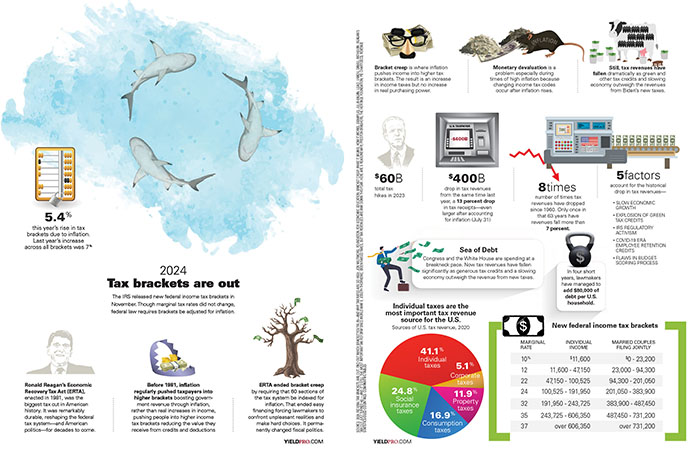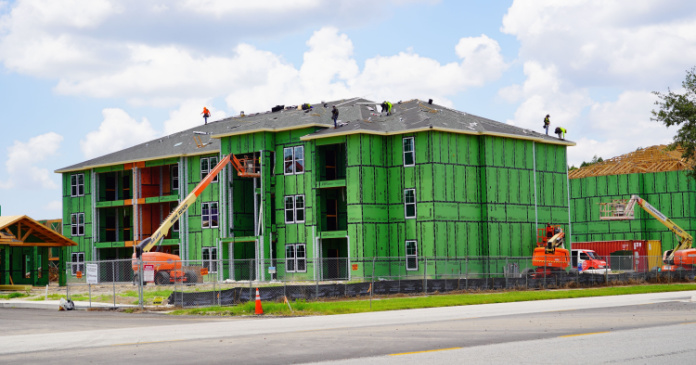Dr. Rosemary Goss opens her first day of class in Virginia Tech’s residential property management major with the exercise above — and puts the reason for the push toward higher education in residential property management in a succinct nutshell.
In recent years, three trends have emerged in the growing professional education field of multifamily professional certificates and degrees:
- Larger residential property management
employers have established
sophisticated internal training
departments and often provide professional
development courses on
company time. - Professional associations in the multifamily
industry and for-profit institutions
have set up certificate programs
in residential property management
and offer a wide range of classes
online and at many locations around
the country. - Employers in the multifamily industry
have been snapping up graduates of
residential property management
degree programs the moment they
graduate, often luring them to the
company first with pre-graduation
internships that benefit the company
and enhance the student’s preparation
for working in the field.
Why the hunger for certified professionals? At the most basic level, although U.S. home ownership rates have increased steadily for ten years, one-third of the U.S. population rents their homes (U.S. Census Bureau, 2004). Most professionals interviewed for this article confirmed this rental rate as valid in their own states as well.
The apartment industry now employs more than a half-million people. Reflecting the industry’s growing appetite for certified or degreed professionals, for-profit companies offering higher education brought in $17.6 billion in 2005, up 71% from 2001. Enrollment in such programs is growing four times as fast as at traditional colleges, according to the Wall Street Journal.
The move toward professional preparation for residential property management began at traditional colleges, who report without exception
that the MF industry approached them to establish programs. Schools such as Virginia Tech, Ball State University, Florida State University and University of North Texas began graduating students from their residential property management programs long before the for-profit sector saw the niche.
Dr. Carla Earhart, director of the Residential Property Management Program at Ball State University (Muncie, Indiana) explains that business leaders in Indiana saw the trend developing and wanted an Indiana-based program. “They needed people with the skills that emerge from a good college education — not just how to do maintenance, but how to supervise a maintenance staff. Big picture people,” Earhart explains.
And now the entire multifamily industry,is competing fiercely for well-prepared, professional
employees.
Armed with CAM certification, grounding in housing and solid exposure to economics,
statistics, legal issues and business courses, program graduates of traditional or for-profit programs step into good jobs with national companies. Patty Hattaway, Florida State University professor in residential science, explains, “I’ve asked people at major insurance companies, “Which would you rather have? A student with a degree in insurance who knows nothing about housing or a student with a degree in housing who knows nothing about insurance?’ They always prefer the degree in housing; they can
teach the specifics of insurance. What you can’t teach is a love of housing. That comes with the student.”
Program growth in colleges offering degrees in housing has mushroomed. Florida State University has 140 students now.
Virginia Tech, where the program began in the late 1980s, graduated 8 or 10 students a year at first, and the students faced disbelief when they boasted having majored in housing. Now 40-50 students graduate each year. In the for-profit sector, online and after-work learning are expanding the ranks of multifamily housing professionals, graduating hundreds of people a year with nationally recognized credentials.
Leslie Hristov, a Ball State University graduate and leasing manager at The Parliaments (Southern Management Corporation NYSE:SOE, ranked 49 on
NMHC top 50 with 23,471 units) in Arlington, Va., both sees and reflects the difference a degree in housing can make. She stepped directly into the manager’s role when she joined the firm. Others who don’t have her preparation often wait six or seven years for a management job. Her firm competes in the field by offering courses leading to a property management degree at the company, on
company time, during paid hours.
Hristov, having completed all the certification
courses as an undergraduate, is taking the firm’s management course, usually a prerequisite for a management job at Southern Management Corporation. She reaps the benefits of having plotted her career path early. Hristov did her first residential property management internship right after her sophomore year, before she could even count it toward her program requirements. She represents the competition that mid-career professionals face as they seek management positions in the industry.
Laura Knochel, a December 2004 graduate of Ball State University’s program and assistant manager at Ballston Place, an Archstone-Smith company (NYSE:ASN, ranked 6 on NMHC top 50 with 75,046
units) in Arlington, Va., grew up in the business and plans to stay with it. She appreciates what she’s learned in her professional preparation and uses it every day.
“It’s great to be able to say to a client who may be a lawyer who challenges the company’s policies, “Yes, we do that thanks to a 1968 law…’ and that ends the challenge.” For Knochel, classroom content translated immediately into on-the-job professionalism allowing her to enjoy her new career from the first weeks. “If all the years go by as fast as this one, I won’t know what hit me.”
Sherry Neal, senior project manager at Equity Management (4,500 units) in Temecula, Calif., acquired her professional certification (PCAM) through the Community Association Institute (CAI). A multifamily veteran with sixteen years’
experience in the field, Neal won a bet with her boss by completing the course in less than two years. Her employer paid for her courses, which were all face-to-face instruction with professionals in the industry, including lawyers, accountants and management experts.
Neal believes that her coursework would have been diminished if she had studied online, pointing out that contact with the instructor is only part of the value.
Tremendous value lies in contact and interaction
with peers, she emphasizes. Having benefited from her own professional education, Neal has served on the Inland Empire CAI board of directors for four years and has won awards for her leadership there. “Even though my employer paid for my courses, professional education is not cheap. But if you make the investment, you will try harder,”
she insists.
New in the market is for-profit education companies or schools that offer their courses
and certification programs online.
Perhaps the best-known is the University of Phoenix, which has added residential property
management to its growing list of professional
programs. Hennepin Technical College in Minnesota is entirely online. Allied Schools boasts 425,000 students in various forms of online career training.
Professional associations have plenty to offer as well. The National Apartment Association Education Institute offers a full professional designation menu online in association with Grace Hill. The National Association of Residential Property Managers (NARPM) offers the RMP (Residential Management Professional) and
MPM (Master Property Manager). Support specialists can get into the game with the CSS (Certified Support Specialist) from NARPM. The Institute of Real Estate Management (IREM) offers CPM (Certified Property Manager) and ARM (Accredited Residential Manager) designations.
“I can’t find a program” is not a valid reason to offer to the boss anymore about lack of professional certification.
Government housing professionals navigate their own alphabet soup. National Affordable Housing Management Association (NAHMA) in association with NAA and American Association of Home and
Services for the Aging, offers the designations
Specialist in Housing Credit Management, National Affordable Housing Professional, Certified Professional of Occupancy, and Fair Housing/Section 504 Compliance certificate. Combinations of online courses and classroom experiences are offered around the country for government housing professionals as well.
Typical costs per course range from $500-$700. The number of courses required for certification varies with the certificate. Business professionals attend in droves.
All of this bodes well for the multifamily
industry. So far, all of the providers seem to
be able to attract students. All of those students
are raising the standard of professionalism
in the industry. Associations have found an excellent source of revenue as midcareer professionals polish their skills.
Colleges have a sophisticated, specialized major that keeps tuition-paying parents from asking hopelessly, “but will you do with that degree after graduation?” For-profit educational services providers have a new and lucrative niche. And people who live in multifamily residences benefit by dealing with well-trained professionals who manage their units.
Leslie Hristov sums it up: “You have to offer the best service to your customers or you won’t survive. That makes things better for residents.”
And isn’t that what multifamily is all about?
Author: Nancy Breuer















